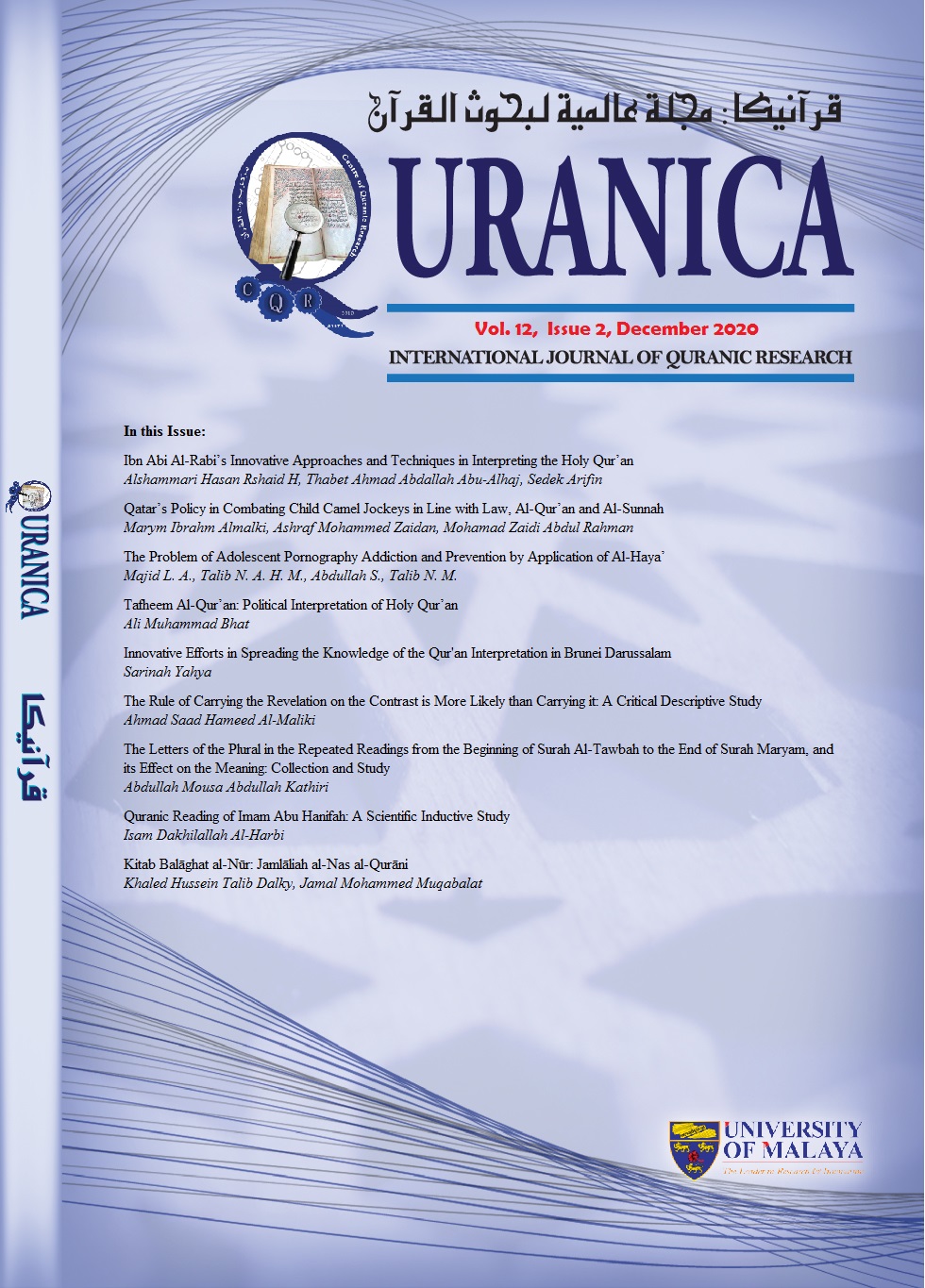Qatar’s Policy in Combating Child Camel Jockeys in Line with Law, Al-Qur’an and Al-Sunnah
Main Article Content
Abstract
Islam legislations as a comprehensive entity protects humans regardless of their colour, race, gender or nationality. Qur’an and Sunnah both emphasise the value of human beings in general and children in particular. This study tackles the problem of child labor having emerged with the industrial revolution at the beginning of the 20th century when there was a need for labor to carry out the various steps of industrial production. This encouraged people to move from villages to cities looking for jobs in factories. Women and children have been engaged in such work, many countries have, however, realized the danger of child labor and the disastrous consequences of this phenomenon on children, their families and society as a whole. The problem was discussed at various national and international levels and thus laws criminalizing the employment of children were implemented. However, with the population explosion in various countries, the employment of children continued to varying degrees, that is child labor has, unlike the developed countries, increased in the developing. This is because the developed countries managed to reduce this phenomenon to a large extent. Qatar was not free from child labor, like the rest of the world, and has received much criticism in this regard, but it quickly and radically has solved this problem and has rehabilitated children returning home after such experience. This article investigates the issue of child labor within the legal framework and international covenants. Then, it presents the efforts attempted by Qatar to eradicate the phenomenon of child camel jockeys and its leading role in this field.
Downloads
Article Details
Disclaimer
QURANICA makes every effort to ensure the accuracy of all its contents. However, opinions, discussions, views and recommendations are expressed in this journal do not necessarily reflect the official policy of QURANICA or views of its editors or publishers. Therefore, QURANICA and its publishers will not be liable for any controversy may be arisen. The journal reserves the right, at its sole discretion, to change its terms and conditions of publications.
Copyright
It is a condition of publication that manuscript submitted to the journal have not been published, accepted for publication, nor simultaneously submitted for publication elsewhere. By submitting a manuscript, the author(s) agrees that copyright for the article is transferred to the publisher, if and when the manuscript is accepted for publication.
